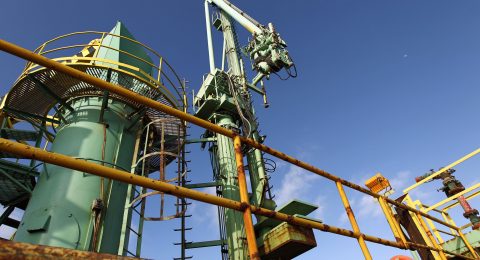The oil and gas industry is facing a critical challenge: achieving both efficiency and decarbonization at the lowest possible cost. By embracing innovative technologies, they can pave the way towards these crucial goals. Recently, 5G technology has emerged as a game-changer, offering a range of capabilities that can significantly improve operational efficiency, safety, and productivity within the oil and gas sector.
Why 5G Matters
The 5G network represents the fifth generation of wireless technology, heralding transformative speed and capabilities that open up new realms of possibility. Verizon’s article underscores this, emphasizing how 5G can be a game-changer. Accenture echoes this sentiment, describing 5G as a platform for groundbreaking innovations.
With the ability to connect virtually everyone and everything – humans, machines, objects, and devices – 5G offers higher speeds, lower latency, superior reliability, vast network capacity, and increased availability. These advancements translate to higher performance and improved efficiency across industries.
A report by Oxford Economics highlights the potential impact of 5G, projecting a 1.7% boost in global productivity by 2023, equivalent to 10% of the current global GDP growth.
5G: A Game Changer in Oil and Gas
Many oil and gas sites grapple with challenging environments, particularly those in remote or offshore locations. These platforms often contend with isolation, harsh weather conditions including wind storms and extreme temperatures, as well as security concerns, transportation challenges, and hazardous conditions.
The advent of 5G has empowered operators to not only address these issues but also enhance production operations and accelerate the industry’s digitalization efforts. Wasslz’s LinkedIn article underscores how 5G enables comprehensive real-time monitoring of oil and gas facilities, fostering higher efficiency, particularly in remote areas. This is achieved through edge computing setups, which ensure low latency in receiving data from industrial devices at reduced costs. Furthermore, 5G enhances worker safety and bolsters companies’ standing with customers, as real-time data leads to improved customer experiences. Additionally, it facilitates the industry’s decarbonization efforts by guiding workers towards low-carbon operations.
According to Deloitte, the global market size for 5G in the oil and gas sector is projected to reach $7.4 billion by 2025, further highlighting the significant impact and potential growth opportunities afforded by this technology.
Here are some of 5G applications in the oil and gas industry:
Real-Time Monitoring and Safety Alerts:
As mentioned above, 5G enables real-time monitoring of critical equipment, pipelines, oil rigs and facilities. For example, sensors and cameras equipped with 5G network can transmit data instantly, allowing operators to detect anomalies, leaks, or hazardous conditions, promptly.
Also, by using 5G equipment, immediate alerts can be sent to control centers, field workers, and emergency responders, preventing accidents or minimizing their impact. In addition, it can provide wearables which enhance worker safety; for example, smart helmets with built-in communication, location tracking, and vital sign monitoring.
Remote Inspections and Maintenance
According to an article posted on Telecom Trainer, 5G enables experts to inspect the infrastructures and facilities remotely; these include drones automated vehicles, and inspection robots equipped with high-resolution cameras and sensors can assess pipelines, rigs, and other assets covering more ground than human and without exposing their lives to dangerous circumstances. Moreover, it enables maintenance crews to receive instructions in real time, ensuring timely repairs and minimizing downtime and costs.
Augmented Reality (AR) and Virtual Reality (VR) Facilitate Trainings and Field Work
5G-powered AR headsets provide field workers with essential information needed for their work as well as enable the technicians to access manuals, safety procedures hands-free. By using 5G -powered AR simulation devices, trainees can experience a realistic and safe virtual environment.
Smart Supply Chain and Logistics
5G enables operators to conduct efficient and real-time data exchange within the supply chain, thereby enhancing logistics and inventory management. This is achieved by real-time tracking of materials and products, as well as optimizing logistics routes.
Secure and Isolated Networks
An article published by 5 Grader elucidated that 5G networks have the capability to be private, offering secure communication channels for critical operations that are isolated from cyber threats.
In summary, 5G technology holds the promise of revolutionizing the oil and gas industry by proactively addressing safety challenges, optimizing response times, enhancing efficiency, and safeguarding both workers and the environment.








